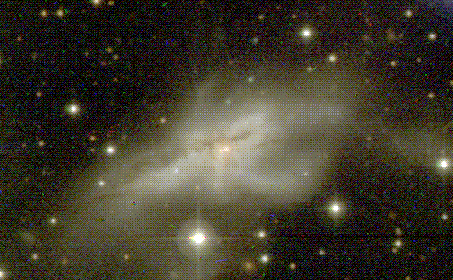Astronomy Picture of the Day
Discover the cosmos! Each day a different image or photograph of our fascinating universe is featured, along with a brief explanation written by a professional astronomer.
December 28, 1995

NGC 6240: When Galaxies Collide
Credit: 2.2m Telescope, La Silla, Chile,
ESO,
MPI, W. Keel
(UA)